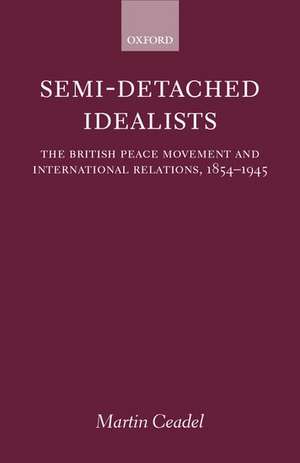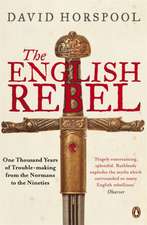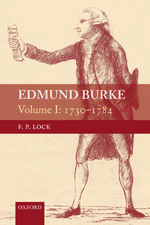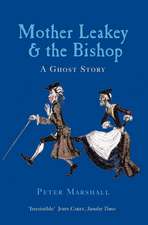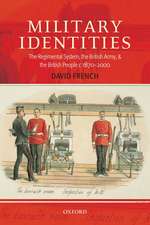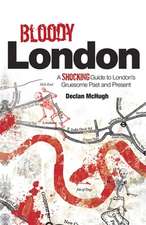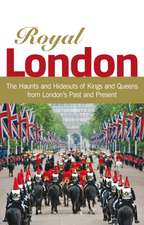Semi-Detached Idealists: The British Peace Movement and International Relations, 1854-1945
Autor Martin Ceadelen Limba Engleză Hardback – 7 dec 2000
Preț: 1671.13 lei
Preț vechi: 2542.46 lei
-34% Nou
Puncte Express: 2507
Preț estimativ în valută:
319.87€ • 347.57$ • 268.87£
319.87€ • 347.57$ • 268.87£
Carte tipărită la comandă
Livrare economică 10-16 aprilie
Preluare comenzi: 021 569.72.76
Specificații
ISBN-13: 9780199241170
ISBN-10: 0199241171
Pagini: 488
Dimensiuni: 163 x 243 x 31 mm
Greutate: 0.85 kg
Ediția:New.
Editura: OUP OXFORD
Colecția OUP Oxford
Locul publicării:Oxford, United Kingdom
ISBN-10: 0199241171
Pagini: 488
Dimensiuni: 163 x 243 x 31 mm
Greutate: 0.85 kg
Ediția:New.
Editura: OUP OXFORD
Colecția OUP Oxford
Locul publicării:Oxford, United Kingdom
Recenzii
[Ceadel] is the foremost historian of the peace movement in Britain today. The breadth of his scholarship is a joy; the bibliography is a remarkable resource. Anywone with an interest in the roots of the peace movement would be impressed by his research, especially into the 19th century Peace Society ... This is an invaluable reference book ... It is an outstanding work and one for which Ceadel should be commended.
Ceadel's terminological exactitude is just one more reason why nobody does it better. Semi-Detached is how it can and should be done in the field of peace studies. It is also about as good as the academy gets.
Martin Ceadel's status as the pre-eminent historiographer and student of peace politics is confirmed by this latest offering. Bringing together research and writing conducted over three decades, Semi-Detached considers the peace movement's 'age of maturity' (ie. Crimean War to World War Two) in a painstaking and graceful fashion. Ceadel appreciates detail like Sherlock Holmes.
Ceadel's solid no-nonsense recounting of peace movement activities in the years leading up to the Second World War provides a unique perspective on the familiar events of that grim decade ... Every student of the British peace movement and its ancillary groups and bodies of opinion must become familiar with this study.
Martin Ceadel's history of peace organizations in Britain from the mid-nineteenth to the mid-twentieth century is the most complete that we have, or are likely to have for a long time.
Thorough and comprehensive ... cogently argued ... Ceadel's painstaking and meticulous archival research and his thorough grasp of the contemporary pamphlet literature enable him to delineate the various ideological strands within the peace movement.
Ceadel's careful sifting of the various strands of religious, political, and humanitarian conviction and witness during the inter-war period makes for especially compelling reading. His assessments of the social and political impact of both organisations and individuals are precise and wholly convincing. There is much crucial insight here for contemporary peace activists.
Ceadel's terminological exactitude is just one more reason why nobody does it better. Semi-Detached is how it can and should be done in the field of peace studies. It is also about as good as the academy gets.
Martin Ceadel's status as the pre-eminent historiographer and student of peace politics is confirmed by this latest offering. Bringing together research and writing conducted over three decades, Semi-Detached considers the peace movement's 'age of maturity' (ie. Crimean War to World War Two) in a painstaking and graceful fashion. Ceadel appreciates detail like Sherlock Holmes.
Ceadel's solid no-nonsense recounting of peace movement activities in the years leading up to the Second World War provides a unique perspective on the familiar events of that grim decade ... Every student of the British peace movement and its ancillary groups and bodies of opinion must become familiar with this study.
Martin Ceadel's history of peace organizations in Britain from the mid-nineteenth to the mid-twentieth century is the most complete that we have, or are likely to have for a long time.
Thorough and comprehensive ... cogently argued ... Ceadel's painstaking and meticulous archival research and his thorough grasp of the contemporary pamphlet literature enable him to delineate the various ideological strands within the peace movement.
Ceadel's careful sifting of the various strands of religious, political, and humanitarian conviction and witness during the inter-war period makes for especially compelling reading. His assessments of the social and political impact of both organisations and individuals are precise and wholly convincing. There is much crucial insight here for contemporary peace activists.
